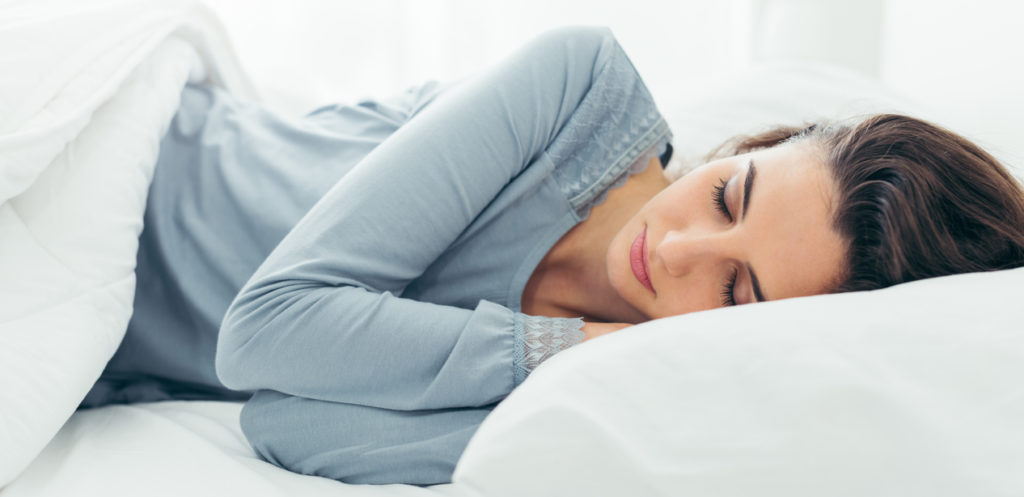What’s better than waking up from a magically swift and restful sleep? The one-third of our lives that we spend sleeping isn’t wasted time. In fact, it’s directly responsible for how fulfilling, happy, and rewarding our waking hours turn out to be. Good sleep habits help our body process and retain memories, repair muscles and broken tissue, boost our immune system and mental health, control our appetite and balance out hormones; all whilst charging and rejuvenating you.
As you can imagine, not getting enough or high quality sleep can leave us feeling frustrated and moody. When women experience motherhood, it’s in their best interest to establish sleep as a priority. New motherhood can be accompanied by “baby blues”, which includes anxiety, sadness, irritability and more. If you’ve been struggling to sleep properly and often wake up feeling groggy or anxious for the past few weeks, this might mean you have experienced insomnia, which is a sleep disturbance. It happens when you struggle with falling or staying asleep and is one of the most common sleep disorders amongst women, especially new mothers.
Normal sleep is often disturbed by hormonal changes as well as emotional and stressful life changes.
which are all present in the aftermath of having a new baby. That’s often why parents, and mothers especially, have poor sleep patterns. About 30% of individuals worldwide find themselves coping with sleep issues daily and if you’re a mother, you’re 14% more likely to experience sleep troubles. It’s important to notice that experiencing a few nights like this from time to time is completely normal. We all have the occasional long endless night. But if you find yourself lying awake for hours at night for more than a few weeks, insomnia may be the problem.
Chronic insomnia can greatly impact your physical and mental health. It can leave you feeling tired and stressed all the time, drastically influencing your energy levels and body’s other regulatory functions. This can affect your mood and ability to concentrate as well. The good news is that there are science-backed tips you can take to work on getting better rest at night!
It’s often more accurate to think of insomnia as part of something bigger rather than as its own problem.
The relationship between sleep and mental health is reciprocal. Stress, anxiety and depression are some of the most common causes of insomnia. In fact, all three are made worse by the very insomnia they cause. For example, adults who sleep more report lower stress levels than those who sleep less hours (7.1 vs 6.2 hours). And those with lower stress levels are more likely to report very good quality sleep (33% vs 8%). That’s why taking care of one of them will automatically benefit the other.
Certain medications or health issues can also cause insomnia. But there’s still plenty within your control to improve the quality of your sleep. So many things play a role in whether or not you get a good night’s sleep. From the temperature in your bedroom, to rearranging your sleep schedule to match your newborn’s, whether you exercised during the day and what thoughts are running through your mind.
Your ideal sleep environment is one that is cool, quiet and dark.
Avoid blue light from your computer screen or television close to bedtime. A 15-20 minute “wind-down” period can also enhance your sleep routine. Take this time to destress, do some light stretches and prepare your environment for your restful night ahead. Most importantly, try to figure out where exactly the insomnia might be from and address it head on. Reaching out to a mental health professional can support you throughout this process, and counselling can help manage the life changes that come following the birth of a new baby.
Read more on how to improve your sleep quality by incorporating healthy sleep hygiene here.







What a kind way to share.
I really appreciate the effort you put into this content. Thank you for being amazing!
Grateful for the positivity you spread here. This is truly heartwarming.